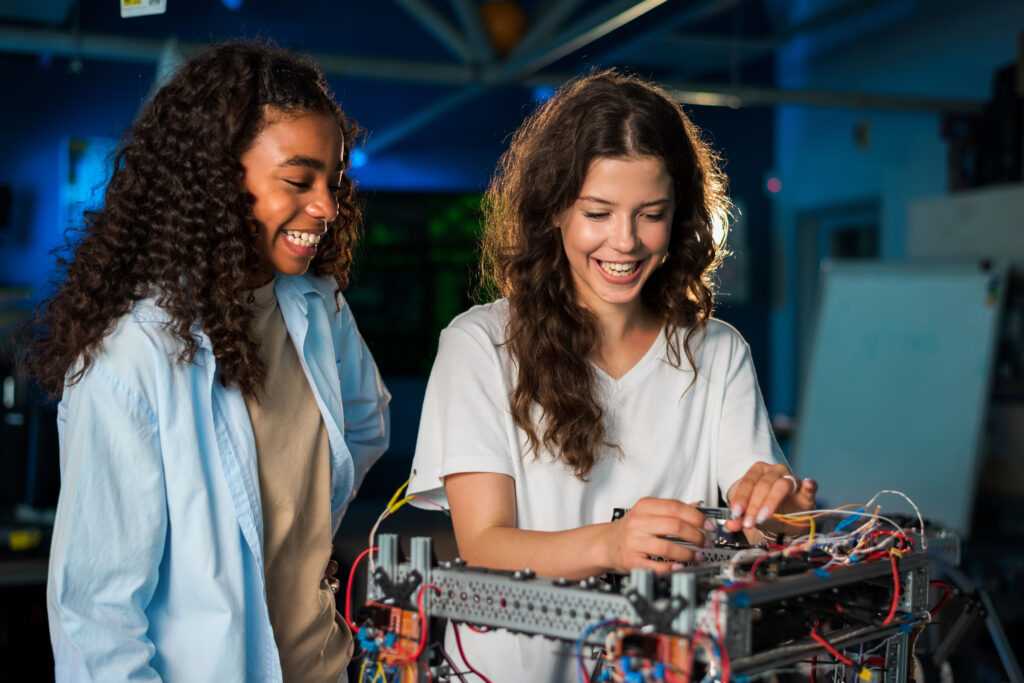Education Support Courses: A Comprehensive Guide to Building a Rewarding Career in Educational Assistance 2025
Introduction
People who wish to make a big difference in the academic and emotional well-being of students are finding that education support courses are becoming more and more important. give caring and devoted people a means to get into the area of educational aid by giving them the information, skills, and confidence they need to help instructors, students, and inclusive learning environments. Education support courses are a solid base for anybody who wants to make a difference in schools, community learning centers, and special education settings in today’s changing education system.
Education Support Courses
People who want to become teacher aids, learning support officers, classroom helpers, or education support professionals can take . These classes not only help students learn more about school subjects, but they also teach them how to communicate well, regulate behavior, and include everyone in the classroom. Courses that help people become teachers focus on both theory and practice to make sure that students are ready for real-world classrooms.
The goal of education support courses is to make sure that every prospective assistant has the tools and training they need to meet the requirements of a wide range of students. As the need for inclusive education grows, courses that help students with their studies have become an important part of academic support systems.
Why Education Support Courses Matter in Modern Learning
They are important because they give support workers organized information and practical skills that make learning in the classroom better for students. Teachers have more work and stress in a modern classroom. Support workers can work well with instructors to lower the stress in the classroom and give students personalized help with the help of . help create a caring environment where students who need additional help, whether it’s with schoolwork or their feelings, may get it quickly. As the student body becomes more diverse, including students with impairments, behavioral issues, or language obstacles, are still the most important part of fair and inclusive learning support services.
Understanding the Core Objectives of Education Support Courses
The goals of are clear: to get students more involved, help teachers organize their classrooms, and make sure everyone feels welcome. Most of the time, the curriculum for includes things like learning how to help with literacy and numeracy programs, managing behavior, and coming up with ways to communicate that are good for helping in the classroom. Courses that help teachers help kids with different learning needs make sure that trainees are convinced they can do so.
These classes assist people learn how to be patient, understanding, and flexible, which are all important traits for a support position. The main goal of is to train people to help instructors by helping students improve their academic and social skills.

Key Skills Developed Through Education Support Courses
Education support courses develop a wide range of skills that are useful in educational settings. Candidates learn how to interpret educational plans, support individual learning programs and assist in technology-based learning activities. also enhance organisational skills which are vital for managing classroom activities efficiently. Emotional intelligence and interpersonal communication form an important part of, helping trainees understand student behaviour and respond compassionately. also focus on professionalism, ethics and confidentiality in educational environments. By completing individuals gain both technical and soft skills that are highly valued in schools and learning centres.
Career Opportunities After Completing Education Support Courses
Courses that help with education can lead to many different jobs, such as teacher aide, education assistant, special needs assistant, learning support officer, or classroom support worker. Schools, community education programs, and vocational learning centers typically look for people who have finished courses in education support. Graduates can work directly with instructors and students in a variety of educational settings in these jobs.
prepare students for jobs by giving them hands-on experience in actual classrooms. A lot of people who take eventually decide to move ahead in their jobs by getting more advanced degrees in teaching or special education. There is a growing need for people who have taken education support courses, which makes this a good career option.
Education Support Courses and Inclusive Learning Environments
Courses that help with education are intimately related to inclusive education approaches. Every child, no matter what their skills or background are, should have the same chance to get a good education. People who take learn how to help students with impairments, learning problems, or linguistic and cultural differences. In inclusive classrooms, education support courses teach support professionals how to provide each student the individual attention they need to make sure they don’t fall behind. Education support courses educate students how to use practices that include everyone, such multisensory learning, diversified education, and communication assistance approaches. By concentrating on inclusion, education support courses assist build learning environments where diversity is acknowledged and encouraged.
The Role of Education Support Courses in Student Welfare
Education support courses not only teach trainees how to recognize emotional or behavioral issues, but they also talk about how crucial it is to care for students’ health. Support personnel are highly essential because they can recognize when a child needs extra support and they can make the classroom a safe and welcoming place to be. People who take education support courses learn how to professionally communicate to teachers, school counselors, and parents about their worries about a student’s health and safety.
These classes stress the need of empathy, active listening, and positive behavior reinforcement. This is why education support classes are such an important part of student welfare programs. Trained assistants often make students feel better about themselves and give them emotional support, which boosts their confidence.

Practical Training in Education Support Courses
Most courses that help with education incorporate both classroom learning and hands-on experience. Trainees may witness how things function in the classroom, learn about the interactions between teachers and students, and try out different methods to help when they do practical placements. People who take courses that aid with education are more likely to employ what they learn in real-life classrooms, which enhances their confidence and makes them more suited for job.

Trainees learn how to aid with organizing lessons, keep an eye on group activities, and help each student throughout their placements. Trainees may think about their job more easily when they are on these assignments since they are taking education support courses. This helps them improve their skills and their professional attitude..
Online and Flexible Learning Options in Education Support Courses
Many schools now offer courses in education assistance that may be taken online or in a mix of both. This flexibility allows working individuals or those with family responsibilities to pursue education support courses at their own pace. Online education support courses include digital learning materials, interactive modules, and virtual classrooms that mimic real-life situations. Even while online formats are easy to use, most education support courses still need a practical placement part to make sure students have real-world experience. Flexible learning formats make education support courses available to more people and get more people interested in working in education support.
Education Support Courses and Professional Growth
Courses that help people get into the education field not only prepare them for entry-level jobs, but they also set them up for long-term career progression. Graduates of education support courses can move on to coordinating roles, specialized support roles, or even teaching degrees with further experience and training. Education support courses teach students how to learn for the rest of their lives and instill professional ideals that make them want to keep becoming better at what they do. Taking education support courses shows that you are committed to making education better, which schools and other organizations that respect professional commitment appreciate.
Challenges Addressed by Education Support Courses
Courses that help teachers and students with their problems are called education support courses. Education support courses enable support workers take on tasks that let instructors focus on teaching in classes when teachers have to deal with a lot of pupils. These classes focus on problems including dealing with bad behavior in the classroom, helping kids with special needs, and encouraging group work. Courses that help with education teach you how to deal with these kinds of circumstances well. By knowing what problems are frequent, students in education support courses may stop problems before they happen and help students stay interested in their learning assignments.
Personal Qualities Encouraged by Education Support Courses
Courses that help with education focus on building human traits like patience, understanding, perseverance, and flexibility. To work at a school, you need to have a good attitude and be dedicated to helping students succeed. teach trainees how to be cool in difficult situations while also helping them figure out what they’re good at and what they need to work on. These personal traits are just as essential as what you learn in school. Education support courses include exercises and group discussions that help you become more aware of yourself and more caring. Taking education support courses may help you improve as a person, which can lead to higher job satisfaction and performance.
Education Support Courses and Communication Effectiveness
Communication skills are a big part of Support staff talk to children, teachers, parents, and school officials on a daily basis. Courses that help with education teach how to use professional language and the right ways to talk to people so that everyone understands and is respected. Education support classes teach important skills including how to read body language, how to give constructive criticism, and how to listen actively. In schools, clear communication helps people understand one other and builds good connections. Students who take education support courses learn how to talk to people in a professional way in any classroom setting.
How to Choose the Right Education Support Courses
When deciding where to take your, you should not rush the decision. The accreditation of the training provider, the relevance of the curriculum, the likelihood of employment after graduation, and the availability of support services are all factors that prospective students should consider before enrolling in a course. Depending on one’s professional aspirations, one can select from a variety of that range in both duration and difficulty. It is critical to ensure that the appropriate individuals are aware of the educational aid programs and that they result in employment opportunities. By reviewing student evaluations and consulting with education specialists, you may also determine which education support programs will serve you best.
The Impact of Education Support Courses on Classroom Dynamics
Education support courses equip individuals to significantly affect classroom dynamics by boosting teacher effectiveness and student engagement. Teachers can do their jobs better and give more focused lessons with the help of qualified support personnel. teach students how to observe classrooms so they can quickly recognize and meet the needs of students. Education support courses assist make the classroom a smooth and effective place to study by encouraging cooperation and organization. Having people in the classroom who have taken education support courses frequently makes the classroom more peaceful and helps students do better in school.
Future Trends in Education Support Courses
As technology and inclusive practices develop, so do the courses that help people learn. To prepare trainees for the difficulties of modern education, are increasingly including digital classrooms, assistive technology, and individualized learning plans. In the future, courses that help teachers will likely focus more on mental health support, understanding other cultures, and employing technology in the classroom. Courses that aid teachers will continually evolving so that graduates may learn new ways to educate and serve a wide spectrum of pupils.
Global Demand for Education Support Courses
There is a growing need for professionals who have taken in throughout the world. Countries that put student welfare and inclusive education first know how important it is to have skilled support personnel. International students and domestic applicants alike might enter the education field through As governments make regulations that help students with special needs feel included and supported, education support courses become an important element of workforce development. Schools throughout the world that provide know that support workers require standardized training to be ready for a variety of classroom settings.
Benefits of Completing Education Support Courses
Taking has several benefits, such as making you more employable, boosting your professional confidence, and giving you a sense of personal fulfillment. A lot of people get a lot of joy from helping kids overcome learning problems and do well. Courses that help with education provide learners the skills they need to make a difference in the lives of youngsters. One of the best things about taking is that they give you a feeling of purpose. Also, graduates typically like having flexible work hours and the chance to work in school communities that are helpful and work together.
Education Support Courses and Community Engagement
Courses that help with education also stress how important it is to get involved in your community as you study. Schools are part of larger communities, and help trainees learn how parents, community members, and local groups may help with education. Graduates of education support courses become important contributors to educational growth beyond the classroom by learning how to interact successfully with community stakeholders. When schools and families work together, they build better relationships that help students learn and stay healthy.
Continuous Learning After Education Support Courses
After finishing their , professionals are urged to keep learning and growing through continuous programs. The area of education is always changing, and graduates need to stay up to speed on new ways to educate, new technologies, and new ways to help students. People who have taken may keep engaged and up-to-date by going to workshops, getting further certifications, and meeting other experts. Support workers may adapt to changing educational policies and trends by continuing to study. This will help them succeed in their careers in the long run.
Final Thoughts on Education Support Courses
Anyone who wishes to make a real difference in the education field should take education support courses. These classes provide people the skills, knowledge, and professional values they need to have successful jobs. Education support courses get people ready to work in a variety of educational settings, encourage inclusive education, and help students stay healthy. As the need for skilled support personnel grows, education support courses remain a potential and important way to get a job. Graduates of assist kids attain their full potential every day, whether they work in regular classrooms, special education units, or community programs.
Frequently Asked Questions About Education Support Courses
What are education support courses?
Education support courses are structured training programs designed to prepare individuals for roles such as teacher aides, learning support officers and classroom assistants by providing theoretical and practical knowledge.
How long do education support courses take to complete?
The duration of education support courses varies depending on the institution and qualification level, but most programs can be completed within six months to a year including practical placement.
Are education support courses available online?
Yes, many institutions offer online education support courses with flexible learning options, although a practical placement component is usually required to complete the qualification.
What careers can I pursue after completing education support courses?
After completing education support courses, individuals can work as education assistants, special needs support workers, learning aides or progress towards higher-level education roles with further study.
Do education support courses include practical experience?
Most education support courses include a mandatory practical placement that allows trainees to work in real classroom environments, apply learning and gain valuable hands-on experience.







